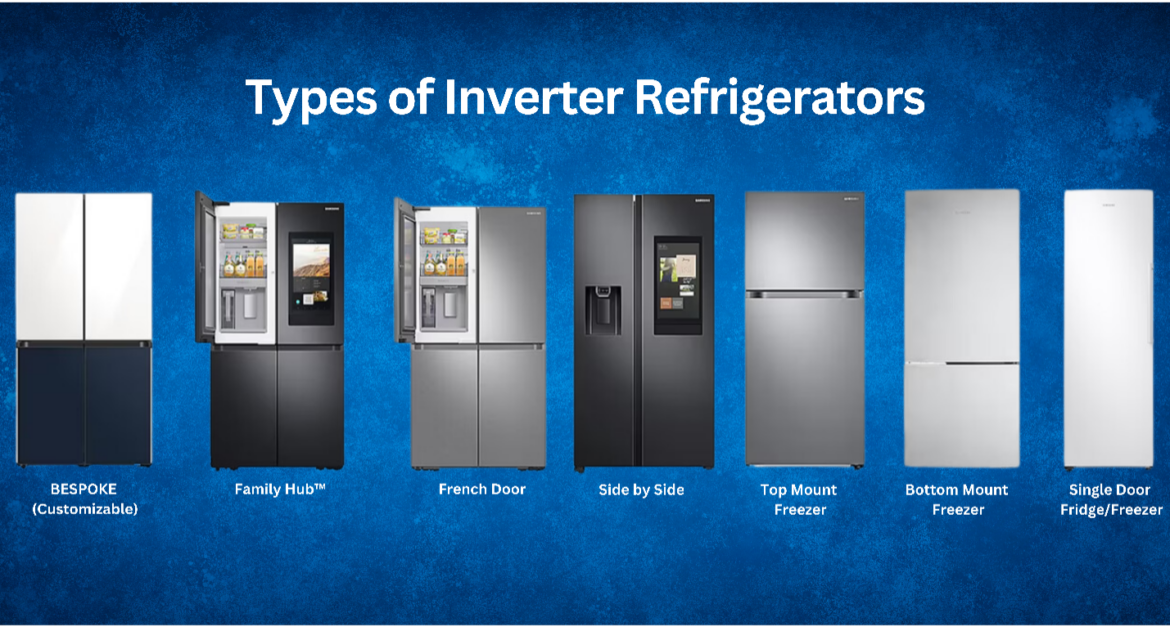Refrigerators keep our food fresh, save us from last-minute grocery shopping, and provide ice-cold beverages on a hot day. However, like all appliances, refrigerators eventually reach the end of their useful lifespan. An old refrigerator can be detrimental rather than beneficial compared to newer refrigerator models. Here’s why.
(1). Older refrigerators consume more electricity than newer models to keep food cold and are more expensive to maintain. This makes them less efficient and more expensive to operate in the long run.
- Older refrigerators consume more electricity resulting from decreasing insulation performance and inefficient compressors that create more heat and use more energy. Older refrigerators struggle to maintain cold temperatures when there is a breakdown in the performance of the insulation. Poor insulation causes condensation and heat gain, thereby increasing the loading on the compressor and greater consumption of energy to maintain cold temperature. This not only leads to higher energy bills but also a shortened lifespan of the appliance and increased costs for operation and maintenance.
- Older refrigerators require manual defrosting, a process that wastes energy. Defrosting involves turning off the appliance to melt any ice buildup, then using extra energy to re-cool it. In contrast, modern energy-efficient refrigerators have frost-free technology. This technology uses a fan and heating element to circulate cold air and prevent ice buildup, resulting in less energy consumption. By switching to an ENERGY STAR labeled or a high Energy Rating Score refrigerator guarantees a modern appliance with features that contribute to overall energy efficiency, lower operational costs, increased equipment lifespan, and better food preservation.
(2). Inverter refrigerators are more energy-efficient, compared to older refrigerator models.
- Inverter refrigerators offer enhanced energy efficiency and precise temperature control. Unlike older refrigerators that rely on single-speed compressors with constant on-and-off cycles, inverter refrigerators use variable-speed type compressors that adjust the speed based on the refrigerator’s cooling needs and provide accurate temperature control. This eliminates energy wastage when the compressor restarts and maintains a more consistent temperature in the appliance that reduces overall energy consumption.
- The variable speed technology in inverter refrigerators allows the compressor to run continuously at lower speeds, gradually increasing or decreasing power as needed. This contributes to less wear and tear on the compressor, resulting in a more durable and energy-efficient refrigerator. Compared to older models with standard compressors, inverter refrigerators use less energy for consistent operation, leading to savings on energy bills and reduced environmental impacts.
(3). Regularly checking and maintaining door seals or gaskets on refrigerators is crucial for maximizing the performance, longevity, and energy efficiency of refrigeration equipment.
- The rubber seal or gasket on a refrigerator door acts as insulation that prevents heat exchange between the interior and surrounding air. A damaged or worn refrigerator door seal allows warm air to leak in and cold air to escape, which compromises the refrigerator’s ability to maintain a consistent cold temperature. It is important to regularly check that the seal or gasket is fully intact, and the refrigerator door closes tightly. If not, the seal or gasket should be replaced immediately. Additionally, to prevent stress on the seal or gasket and the compressor, items should be stored properly in the refrigerator to ensure the door closes completely.
- A proper refrigerator door seal or gasket helps to preserve food by controlling moisture levels. Excess moisture can lead to bacteria and mold growth, as well as freezer burn on some foods that causes food spoilage. A tight seal or gasket keeps moisture levels in check, which prevents mold and bacteria growth and slows down the drying out of some foods in the appliance. This not only maintains the quality and safety of the food, but also extends the lifespan of the refrigerator due to efficient energy use and proper moisture control.
(4). For optimal efficiency, limit the number of times the refrigerator door is opened and closed to minimize energy consumption.
- Opening the refrigerator door allows cold air to escape and warm air to enter, raising the internal temperature. This forces the appliance to use extra energy to restore the desired cold temperature. To minimize energy consumption, open the refrigerator door only when necessary and for short periods. Additionally, planning meals ahead and making a quick grab-and-go approach to the refrigerator can further help to save energy.
- Frequent opening and closing of the refrigerator door lead to temperature fluctuations. These fluctuations not only force the compressor of the refrigerator to work harder and consume more energy, but it shortens the shelf life of the food. By keeping the refrigerator door closed as much as possible helps to maintain food freshness and contributes to efficient refrigerator use.
So, if your refrigerator is an energy guzzler, it might be the right time to invest in a more modern, energy-efficient model. By replacing your old refrigerator with an inverter refrigerator, you can save money in the long run, preserve food quality, and contribute to protecting the environment!

